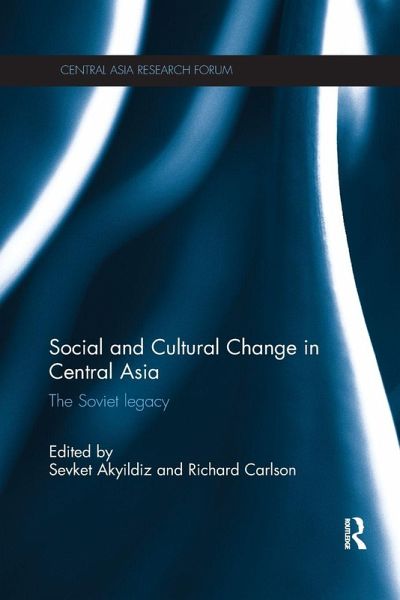
Social and Cultural Change in Central Asia
The Soviet Legacy
Herausgeber: Akyildiz, Sevket; Carlson, Richard
Versandkostenfrei!
Versandfertig in 1-2 Wochen
62,99 €
inkl. MwSt.
Weitere Ausgaben:

PAYBACK Punkte
31 °P sammeln!
Focusing on Soviet culture and its social ramifications both during the Soviet period and in the post-Soviet era, this book addresses important themes associated with Sovietisation and socialisation in the Central Asian states of Kazakhstan, Kyrgyzstan, Tajikistan, Turkmenistan, and Uzbekistan.




